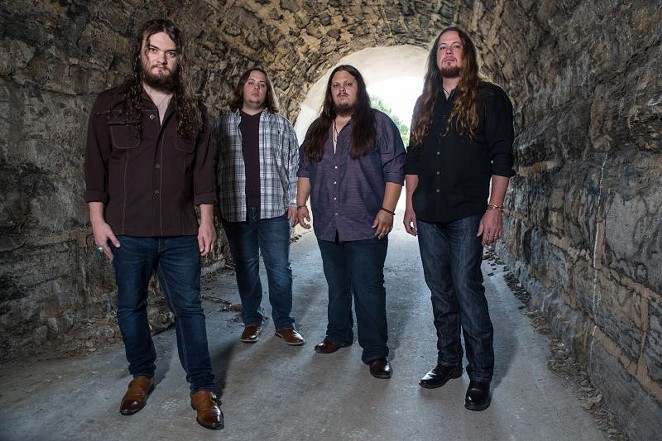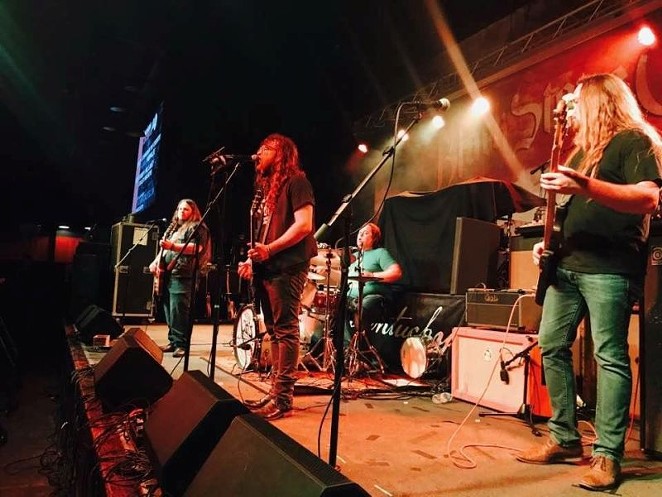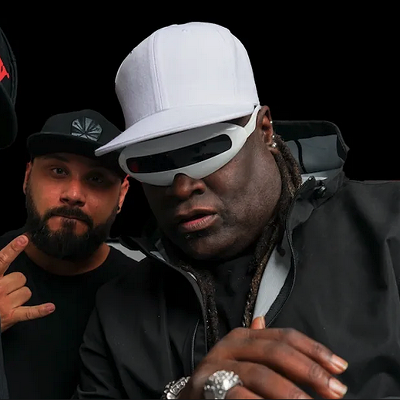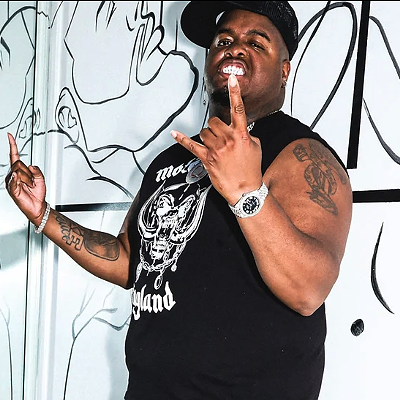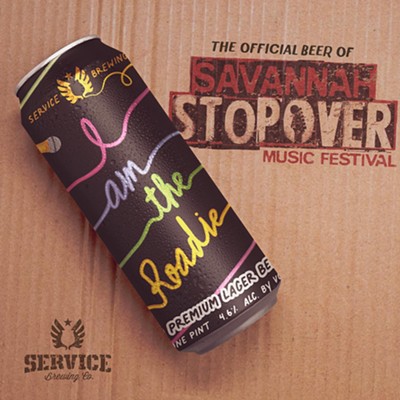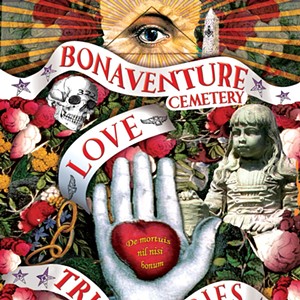Kentucky’s OTIS is, for all intent and purposes, carrying the Southern rock flag these days. The band’s unique brand of roots-influenced blues rock has been winning over audiences for years now, and even earned them praise from rock icons like ZZ Top’s Billy Gibbons. Their most recent release, the critically-acclaimed Eyes Of The Sun, was produced by Grammy-winning producer and Johnny Winter collaborator Paul Nelson.
Comprised of singer Boone Froggett, guitarist Steve Jewell, bassist John Seeley, and drummer Andrew Gilpin, the band is currently on an extensive tour in support of their latest effort.
Ahead of their show at Barrelhouse South, we spoke to Jewell about their distinct sound, the history of the band, and the importance of music history.
How did the band start, and how did you land on what you do?
SJ: All four of us lived in the same area, and grew up in south central Kentucky. The way we were raised, we were brought up playing music with our dads and family members. Country, southern rock, classic rock, blues - you name it. Especially for Kentucky, it's a small community so if someone plays music you definitely know about it.
Our singer, Boone, and our bassist, John, were playing at Boone’s father’s jamboree. Eventually our drummer Andrew started playing there with them. I’d been friends with Boone and John, so the stars just kind of lined up one day. We put the band together, probably about seven years ago now, and it’s just been going great ever since. We got together as friends and started jamming, and it just evolved to where it’s at now.
So what kind of stuff were you listening to when you first got together? Were you bonding over certain bands, or were you bringing in your own individual influences?
SJ: A little bit of both. Playing with our dads, we got turned on to a lot of things at a younger age - bands like Skynyrd and the Allmans, country music like Merle Haggard and Buck Owens. And classic rock bands as well like Led Zeppelin, Deep Purple, and Grand Funk Railroad. Through studying those bands, it led us to those band's influences. You discover Muddy Waters, Howlin' Wolf, Ray Charles, Miles Davis, John Coltrane - all that good stuff.
The special thing about our band is that we all share the same common interest of what music we like. Even a lot of our guilty pleasures are the other person’s guilty pleasures. We’ve studied a great deal of roots music. Whether it’s Chicago blues, Delta blues, jazz, gospel, or bluegrass. What’s always been interesting to us about roots music is that it’s the root of modern music - it’s where everything stems from.
This is what makes the most sense to us - in this day and age there’s so much music out there. Which is awesome, but at the same time if you’re an up-and-coming artist it can be hard and intimidating to find your own sound and be your own band. So what made the most sense to us is to do what our heroes did - study these iconic roots artists and let it influence us to help us find our own identity.
It’s good that you brought up the roots influence because there’s one song I’m really curious about from the new record - “Relief in C” sounds like it was a really big nod to Led Zeppelin III. That sort of progressive, acoustic Zeppelin thing. When you were writing that song, were you intentionally trying to do something different from the rest of the record?
SJ: Absolutely not, man! [laughs] That's an instrumental song that I wrote for the record. Basically how that came about is, I was listening to a lot of Middle Eastern music like Ali Akbar Khan and some later Black Crowes records like the Warpaint album. I was also listening to a lot of older bluegrass - I don't know, it kind of came out. I think the thing that gives it the Zeppelin edge is the mandolin on it.
Definitely. It has that sort of John Paul Jones playing style happening.
SJ: Right. A good friend of ours, Danny Williams, is a stellar musician and mandolin player here in Kentucky. We were wanting to showcase a different side of the band - more kind of a country and roots background. We were thinking more of that, and that's why we have the mandolin on it. It's maybe a little bit of an homage to those who've mixed roots, country, and rock. It just kind of came out that way.
The idea that you were listening to Middle Eastern music when you were writing is similar to Zeppelin in that they were listening to similar things - Nusrat Fateh Ali Khan and Egyptian music and stuff like that - when they were experimenting on their later records. It goes to show the power of music despite cultural barriers.
SJ: Music is a universal language. By going back and studying bands and roots music, it kind of led me to [the international influences]. Studying a lot of our heroes and what they were into, like the Beatles when they went to India, kind of led us to check some of these people out. Then you start thinking about what it would sound like if Bill Monroe and Ali Akbar Khan had a jam session with special guest George Harrison. It kind of makes you wonder.
There are bands like Greta Van Fleet who haven't really found their thing yet, and they get a lot of criticism for not acknowledging their influences - like Zeppelin, first and foremost. Particularly because the influence is so glaring. I think there's a fine line you have to ride between finding your own thing and acknowledging where it came from, and you guys do that really well. What's your formula for striking that balance?
SJ: Listen to everything, and study roots music because that's where it all comes from. If you're a band or an artist finding your voice, it's fine when you're starting out to channel maybe on certain band or whatever.
Or you may go through a phase where you play just B.B. King licks or Jimmy Page licks. At some point, as you grow as a musician, channeling those people are great but it’s a matter of finding that fine line of how to evolve away from that. It’s hard, with everything that’s been out over the past five or six decades, to know where to go. When Hendrix hit the scene, people went - where do we go from here? It’s tough.
But in my opinion what’s worked for us well is going back, doing homework, and studying the artists who influenced our heroes. It hits you in a totally different way.
If you like Led Zeppelin, you’ll find out that they were really into Howlin’ Wolf or Elvis Presley. Or you find out they interpreted a song by Willie Dixon, then you find out who he was and get to Chess Records in the 50s. You can keep going back from there. A lot of times, that’s as far back as some people will go.
But we keep going back farther than that - discovering people like Son House. And then you get to Robert Johnson, and then to Charlie Patton.
And then, if you really want to do some homework you can go back and discover a lot of obscure artists. We did a tribute record to John Brim - he wrote the song “Ice Cream Man” that Van Halen did on their first record. John Brim was from Hopkinsville, Kentucky, and recorded on Chess Records with Little Walter and Elmore James.
We take a lot of pride in what we have to offer here in the state of Kentucky. We’re smack dab in the middle of Chicago and the Delta. You had those blues movements happening, and you also had more Appalachian-type roots music.
And then fast forward a few decades, you go north of Kentucky to Michigan and get Motown. If you go south, you get Stax Records. Kentucky is kind of in the middle of a lot.

